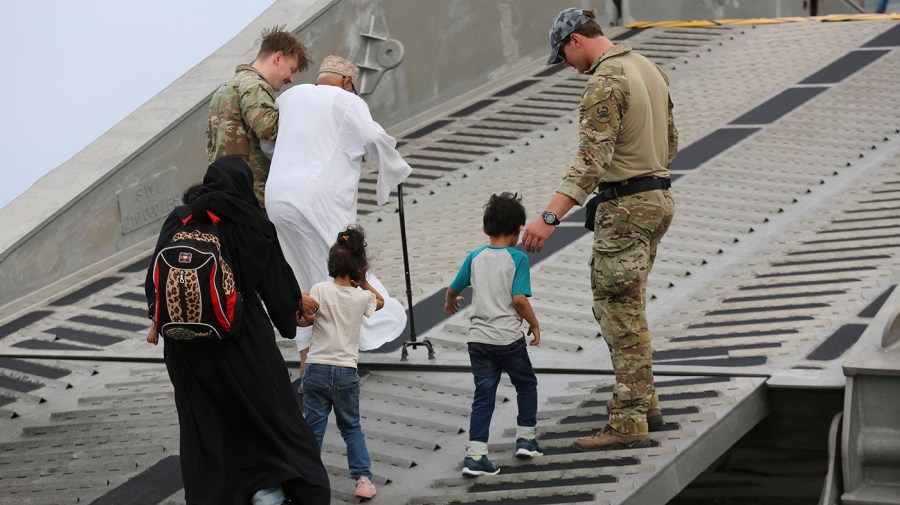Role of US troops in Sudan to shift as Biden administration sees no quick end to fighting
The Defense Department’s help in evacuating U.S. citizens from Sudan is set to shift as the State Department’s mission there changes, Pentagon deputy spokesperson Sabrina Singh said Thursday.
“We will make decisions about how and when to move U.S. forces when the conditions are right to do so,” Singh told reporters. She declined to say what changes were coming.
Singh added that the U.S. military is still prepared to offer support in the country if asked.
American troops, through U.S. Africa Command, have been helping U.S. citizens and others escape Sudan amid fighting between warring military factions in the country known as the Sudanese Armed Forces and the Rapid Support Forces (RSF).
Using the fast-transport ship USNS Brunswick — one of three Navy ships off the Sudanese coast — DOD has evacuated hundreds of people, including American citizens, nationals from allied and partner countries and locally employed staff across the Red Sea to Jeddah, Saudi Arabia.
More from The Hill: Hundreds of US citizens evacuated from Sudan amid conflict
Including overseas and overland operations, the U.S. government has evacuated more than 1,000 Americans since the start of the fighting.
Singh said the Brunswick continues to operate near the Port of Sudan and is currently transporting about 200 people over to Jeddah.
“Our force posture remains the same; it hasn’t changed,” she said, without saying whether the ship’s transit was its last.
Earlier Thursday, U.S. Director of National Intelligence Avril Haines said the Biden administration expects fighting in Sudan to continue as neither side has an incentive to seek peace.
“The fighting in Sudan … is, we assess, likely to be protracted as both sides believe that they can win militarily and have few incentives to come to the negotiating table,” Haines told the Senate Armed Services Committee.
“Both sides are seeking external sources of support, which, if successful, is likely to intensify the conflict and create a greater potential for spillover challenges in the region,” she added.

Haines also said the fighting has worsened the “already dire humanitarian conditions in Sudan,” forcing aid organizations to curtail operations. This, in turn, sets off massive refugee flows and aid needs in the entire region.
“Even before the fighting started, roughly one-third of the population, or approximately 15.8 million people, required immediate assistance because of disease outbreaks, inflation, localized conflicts, internal displacement and weather-related food insecurity,” she noted.
Fighting between the Sudanese Armed Forces and the RSF began April 15, with the battle primarily in the capital city of Khartoum.
Both sides had earlier agreed to a seven-day cease-fire, but that has failed, with more than 550 people killed in the fighting, according to Sudan.
Another 100,000 people have fled the country, according to the UN.
Copyright 2024 Nexstar Media Inc. All rights reserved. This material may not be published, broadcast, rewritten, or redistributed..











